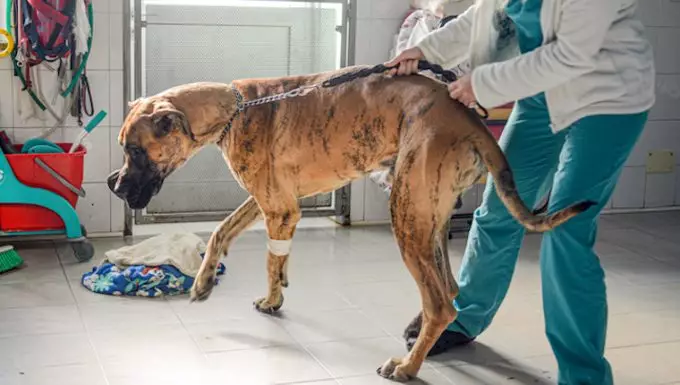Joint cancer, particularly known as synovial sarcoma, is a rare yet aggressive cancerous condition that affects the joints and connective tissues of our canine companions. It primarily impacts larger dog breeds, including notable names such as Rottweilers, Great Danes, and Saint Bernards. While the exact cause of this devastating disease remains elusive, understanding its symptoms and treatment options is crucial for pet owners to ensure timely intervention and effective care.
Recognizing the signs of joint cancer in dogs can be challenging, especially since they can mimic other conditions. Common indicators include significant weight loss, excessive limping, decreased appetite, unexplained fevers, respiratory difficulties, and noticeable swelling around the joints. If you notice any combination of these symptoms in your dog, seeking immediate veterinary advice is essential. Early detection can make a significant difference in prognosis and treatment outcomes.
While joint cancer can affect any dog, certain breeds are predisposed to this condition. Among them, the Irish Setter, German Shepherd, Boxer, and Golden Retriever are frequently reported cases. This breed-specific susceptibility prompts a need for heightened vigilance among owners of these breeds, especially as they age. Regular veterinary check-ups can be critical in monitoring their health and catching potential issues early.
Diagnosing joint cancer in dogs involves a multi-faceted approach initiated by a thorough consultation with a veterinarian. You can expect a discussion that includes inquiries about your dog’s symptoms and a detailed medical history, which helps in identifying breed-specific concerns. Following this, a complete physical examination is standard, along with necessary blood and urine tests, which provide further insight into your dog’s health. Imaging techniques such as X-rays are vital for visualizing the affected areas, and a biopsy may be performed to confirm the presence of cancer.
When it comes to treatment, amputation of the affected limb or area often becomes necessary to combat the cancer effectively. While this is undoubtedly a daunting prospect for any pet owner, it is essential to consider that successful removal can prolong your dog’s life and enhance their quality of life. Post-surgery, pain management becomes a priority. Adhering strictly to the veterinarian’s medication schedule and dosing instructions is crucial for your dog’s recovery.
Additionally, facilitating a comfortable environment for your pet during the recovery process is essential. Limiting their exercise and encouraging gentle outdoor activities while they recuperate can aid in their healing. Regular follow-ups with the veterinarian are imperative to monitor recovery progress and address any concerns as they arise.
Caring for a dog diagnosed with joint cancer can be an emotional and physically demanding journey. Many pet owners find comfort and encouragement from others who have experienced similar challenges. Engaging in communities focused on pet health can provide both support and additional resources for navigating treatment and recovery.
While joint cancer presents a formidable challenge in canine health, understanding the disease, recognizing the symptoms, and knowing how to respond can equip pet owners to advocate effectively for their furry companions. Prompt veterinary intervention remains the cornerstone of ensuring that affected dogs receive the critical care they need.

